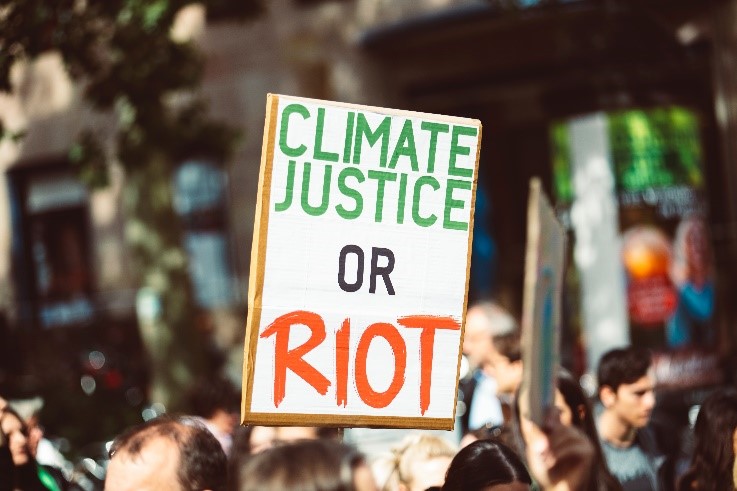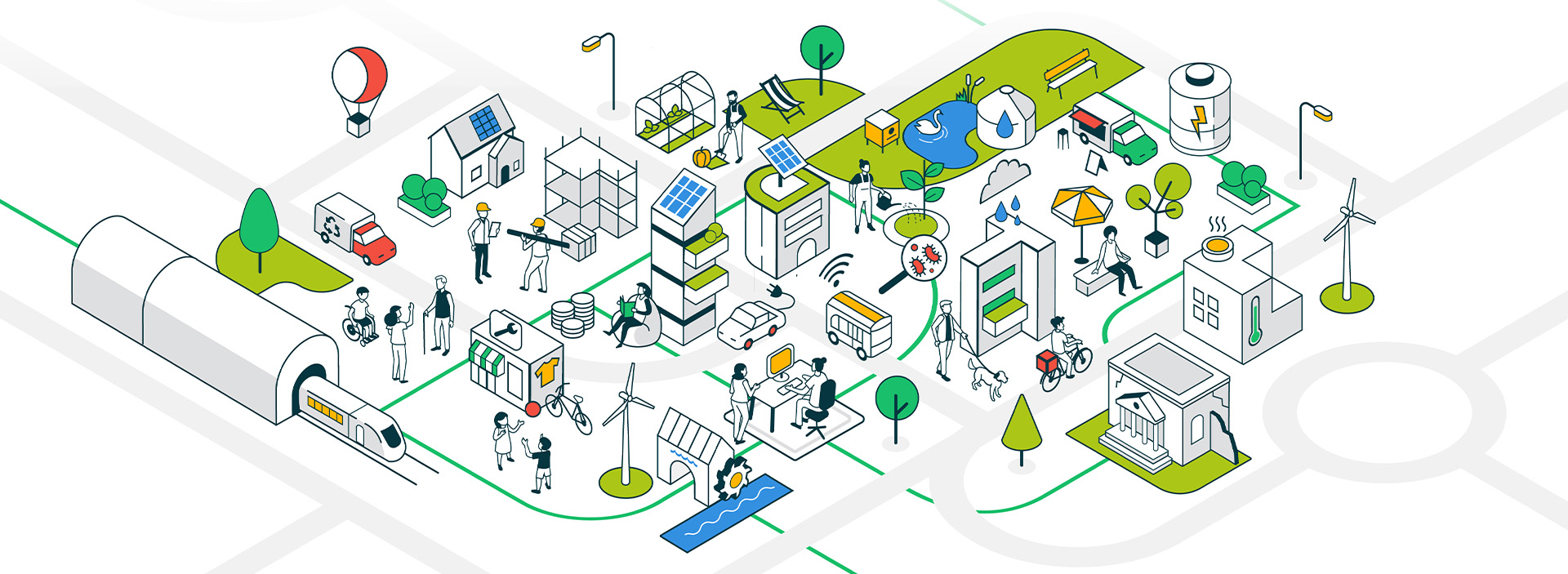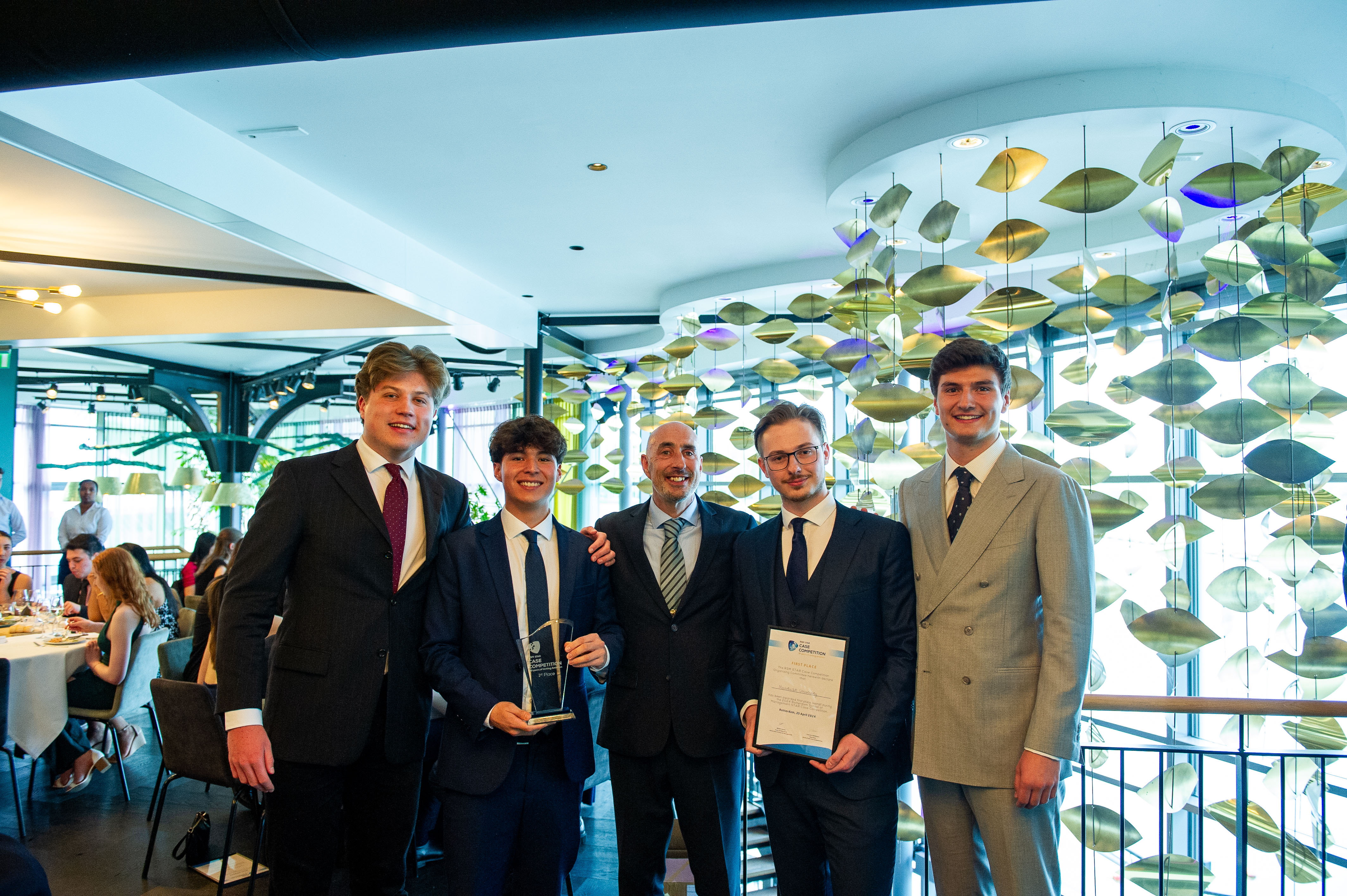Hallelujah, It's Raining Lies!
Humanity has gone through different sorts of natural crises that took it to the verge of extinction: the early low breeding age (900,00 years ago), ice age and more recently multiple waves of plague. After each of them, humans became genetically and mentally more resilient through learning and adapting.
We formed closer communities, built warm houses and innovated medicine and vaccines. In the same way, we will (hopefully) go through climate change if we are lucky, and all the sacrifices that policymakers want us to make are necessary and effective. Nevertheless, no organisation exploited climate change like large media corporations –it is widely evident and even famous among climate scientists!
Societal values at stake
I believe that our physical and mental health are challenged by both climate change itself and the people around it. It is a hot topic and could be an existential problem if it escalates too much. Luckily for media, politicians and sustainable goods producers, it provides fine ground for radical behaviour online and on the streets. Denying or wanting to fight it with the most irrelevant and brutal tools are the perfect instruments to win any election or political debate. It has revived the far left (in fighting it) and far right (in denying it) in Europe and the U.S. and has polarised the societies in a way that cannot be reversed for decades. Who thought that one day, a group of climate activists (Stop Oil) blocked the traffic, then got abused by the passing individuals, while the traffic caused by them delayed the arrival of an ambulance by 20 minutes? What on earth are we doing to our societal values, bonds and friendships? Who benefits from all this hatred?

This article is written by Siavash Mohades, a double-degree PhD candidate in Economics at Maastricht University and LUISS Guido Carli University. His research interests lie in Firms' Productivity, Uncertainty and innovation.

Of course, people benefiting from this situation – which I believe is media – will not allow science to have a voice for opinions on what the media sells as settled facts, good and bad policies here and there. Any debate against any wrong claim by left and right will be suppressed strongly, and opposition voices are either ``Marxists", ``Libertarians", ``Climate Deniers," or ``Climate Hoax". It is all about making people hate each other passionately and be angry at a group for no reason. Now that we happen to live in these bizarre and offensive times, there is only one way to survive the mess. We must fight for our resilience toward the media first and wait hungrily for more innovative energy sources in developed and developing countries if we ever truly care about pollution and its potential climate impacts.
A true fight against lies
How does the media never get enough of hurting your mental health? You browse any website these days and see titles like "The Planet is Roasting" or "The Climate-Change Will Wipe Us Out". Media feeds from a concerned audience, and vaguely dramatic titles make us even more stressed and intrigued in revisiting the media the day after. Then you have the counterattack from the other side: "The Coldest Winter Ever: Where Are the Leftists Now?". Well, it makes sense. If you infer from a few hot summers that we will all die from global warming, a few cold winters would mean the opposite. Climate science studies climate over many decades and centuries, its thousand-year cycles and the disentangling of natural and human effects. Weather reports and record-breaking events in short cycles, such as a few decades, can ring the alarms but not necessarily be signs of a disastrous future.
That is where media will deviate from science and evidence on both sides and feed its commercial goals and certain political ideologies. They also play their tricks as subtly as they can by choosing hot titles. You dive into their in-depth text and will usually spot differences from what their headlines suggest since they know most of the audience will not click and read through their large font screamers.
As individuals, we need to visit experts in times of crisis – just like we did during the Covid outbreak. We asked our medical staff how to stop spreading the virus, whether vaccines were safe and how to get out of the ICU if things went too far. It looks to have worked – especially in geographies that trusted science. Then why would we trust an economist, business owner or a news reporter regarding climate change?
The difficulty of understanding climate changes
My guess is the complexity issue of climate science, a field that I have been reading a lot for a few years now. Models are way too complicated; they cannot make accurate predictions, and any inference to them is objectively inaccurate and wrong, as usually even mentioned and warned about in the scientific paper. They are usually papers in a work-in-progress stage, and authors are under pressure to write media briefs – which are not longer than a few pages. In that policy brief, they are required to write a non-expert summary. Media, however, will take a wrong prediction of these models taken from the non-expert summary and sell it as a crystal ball predicting our extinction– even though the scientific author had already warned the reader about potential issues. Then, what should non-expert individuals do?
If there were one way to be mentally resilient towards climate change as an individual, it would be to enlighten oneself and talk to the experts if they are around. Of course, not every household can find a climate expert (well, there are millions of activists and YouTube self-learners. Here, I mean a scientist, someone who can quantitatively and qualitatively look at the matter and bring you some doubts about whatever you hear, not certainty). Once you doubt anything you hear or read, you can refer to Google Scholar. Most of the papers (in almost all fields) have non-expert-friendly abstracts nowadays that I promise are 180 degrees different from what a climate-concerned-want-to-be website interprets.
Besides, multiple blogs simplify the scientific findings that relate to climate change. They might not be as tempting as the hot titles of social media and websites, but they are closer to what reality and scientific findings suggest. They will tell you stories about global warming and rising ocean levels. However, they will show you figures that even at the current rate – if we were to be as careless as we currently are – the ocean levels rise will not be enough to cover our cities – unlike all the graphics that show the Statue of Liberty sinking.
Also read
-
Maastricht Sustainability Institute (MSI) of Maastricht University School of Business and Economics (SBE) has successfully applied for funding in the ‘Driving Urban Transitions’ program of NWO/ JPI Urban Europe. Three new transdisciplinary projects with international partners have recently started...
-
SBE took first place in the Rotterdam School of Management Star Case Competition (RSMCC). The competition welcomed 16 top-level international business teams of four students, who were tasked with tackling two real-life business cases.
-
Higher air pollution increases the likelihood of people voting for opposition parties rather than ruling parties. This is the major finding of research by Nico Pestel, a scientist at the Research Centre for Education & Labour Market (ROA) at the Maastricht School of Business and Economics.


